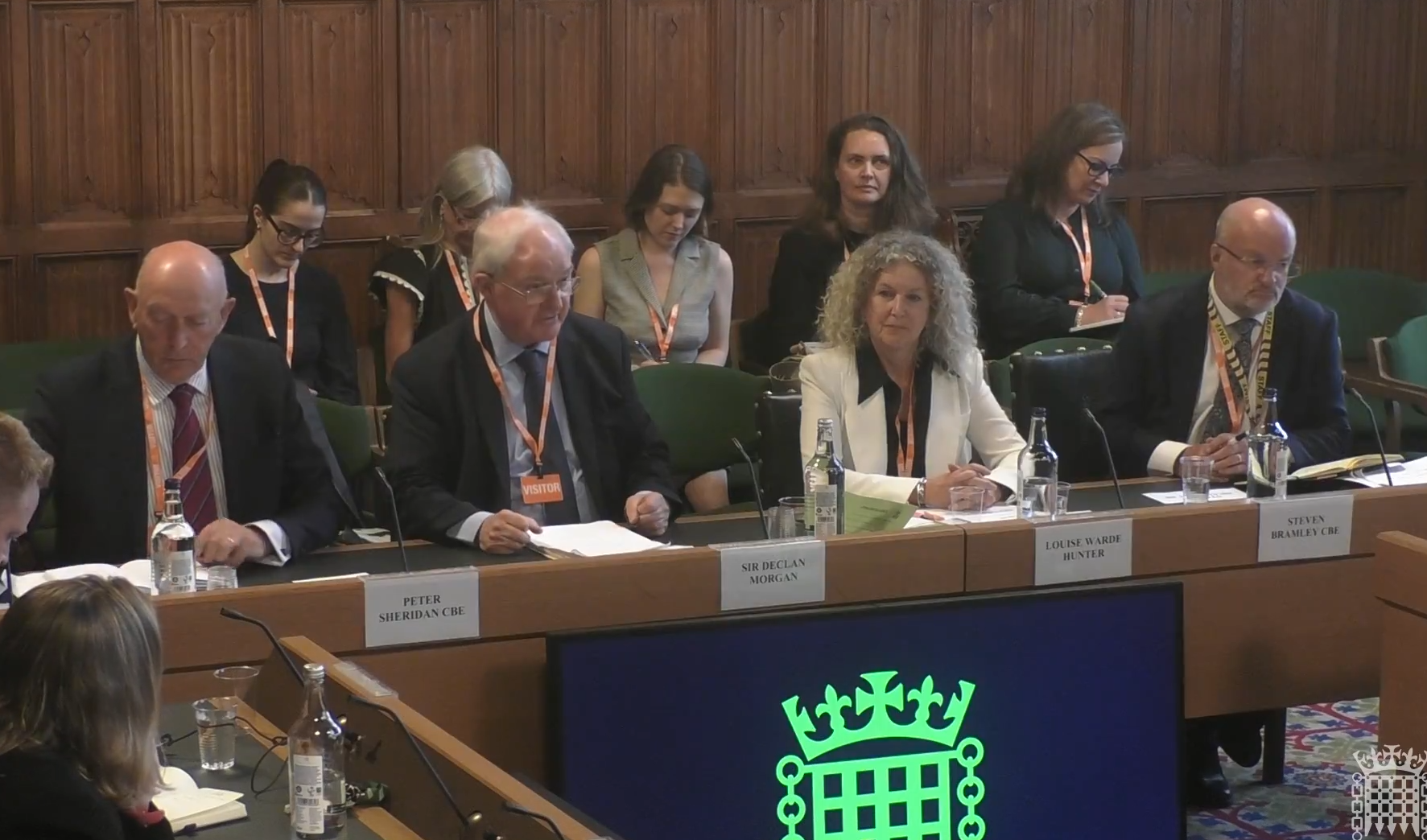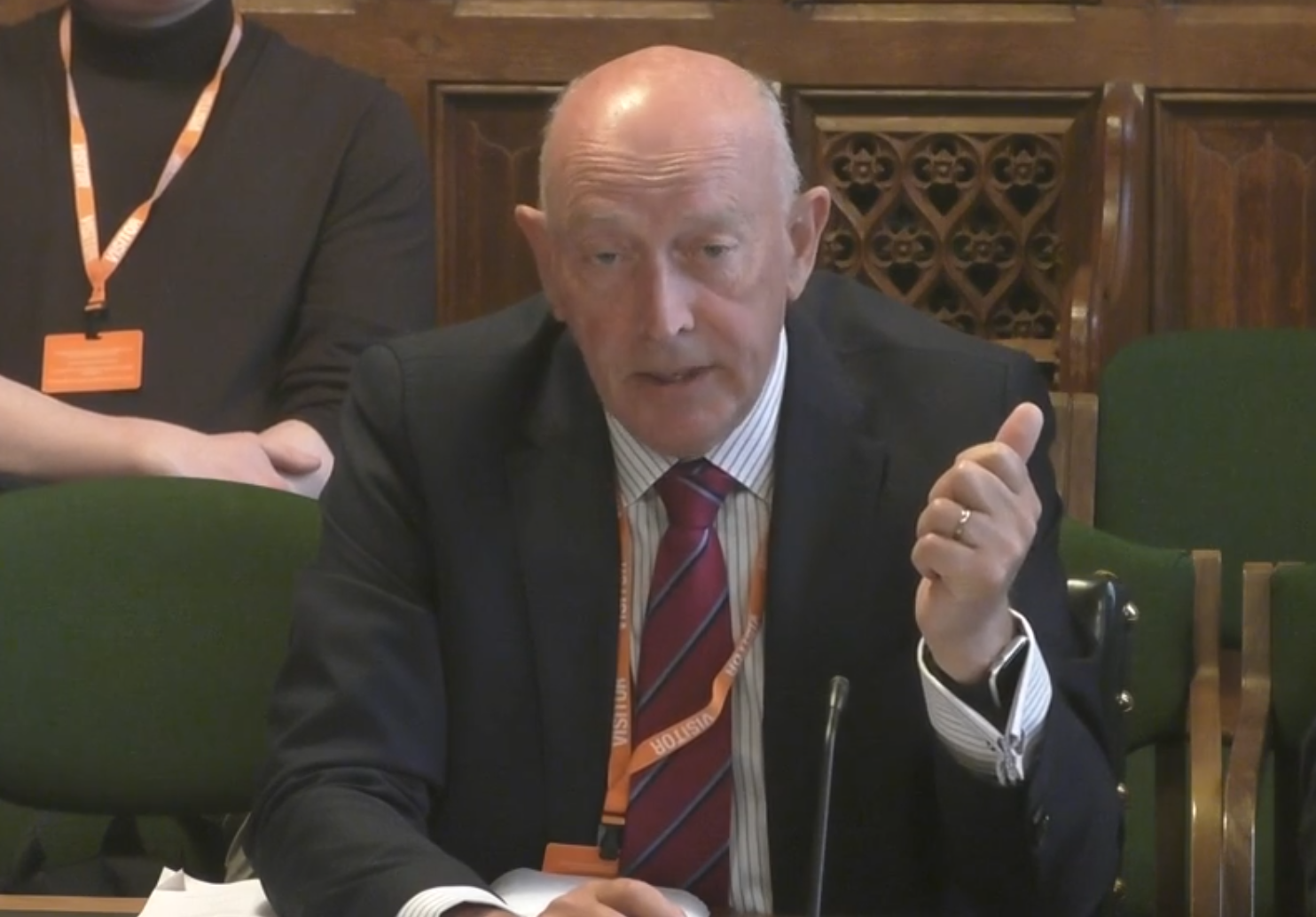Sir Declan Morgan described a ‘reset moment’ to make changes to the Legacy Act.
The leader of a new Troubles legacy body has insisted that it is focused on and capable of uncovering the unvarnished truth for victims and survivors.
Sir Declan Morgan, chief commissioner of the Independent Commission for Reconciliation and Information Recovery (ICRIR) also described a “reset moment” to improve the “imperfect” Legacy Act.
It comes after the controversial legislation was passed despite widespread opposition and concern from political parties in Northern Ireland and victims and survivors of the Troubles.
The Legacy Act halted scores of cases going through the courts and inquests concerning the Troubles.

Giving evidence to the Northern Ireland Affairs Committee over how the Government should address the region’s past, Sir Declan said the ICRIR currently has 60 investigations ongoing, and has received more than 160 requests.
Those include the deaths of five people in the IRA’s Guildford pub bombings in 1974, the death of Alexander Millar in Ardoyne in 1975, the death of Seamus Bradley shot by the Army in Londonderry in 1972 and the death of the judge Rory Conaghan killed by the IRA in 1975.
Sir Declan told MPs: “Those would not have happened if we had not looked at the opportunities that this legislation has provided, and we can do all of those things in an Article 2-compliant way, and in a way which will eventually secure the unvarnished truth.
“By the end of this year we will have over 100 investigations in relation to probably more than 150 deaths ongoing, and by the time of the legislation we would expect that that number would have significantly increased, as would the number of people that we have been able to help.
“The choice was whether to help those people who were anxious to have an answer to what they wanted or stand back and say, this legislation is not perfect. I don’t make any apology for the fact that I decided I wanted to help people.”
He added: “I just wonder whether the approach to the work of the commission will be treated in such a negative light, particularly when the two governments reach agreement on what they want to do.”
Also giving evidence to the committee, ICRIR commissioner for investigations Peter Sheridan said he absolutely rejects that they are carrying out light-touch reviews.

“Let me assure this committee that it is absolutely not,” he told MPs.
He described the first stage of the process as being a cold case review which looks for new evidence, verifies old evidence, identifies investigative failures and re-examines forensics.
“That’s going to be the key for us because witness evidence from the past is difficult, but new forensic opportunities, and I already see it in some of the cases … so we’re examining that with the latest trace evidence that you can use,” he said.
“Looking at continuity of evidence in old cases, conduct fresh searches on data bases and use advances in digital forensics, so it is absolutely not a light-touch review.
“I am duty-bound under the legislation to look into all of the circumstances of the case, that’s what we’re doing.”
Sir Declan emphasised that the focus of the ICRIR is “on finding a mechanism to ensure that we achieve the unvarnished truth for victims and survivors”.
“The High Court and the Court of Appeal in Northern Ireland have found that we are capable of doing this in an Article 2-compliant way in most if not all cases,” he said.
“The litigation that has occurred in Northern Ireland has been very hard on families and with hindsight I just wonder whether we could all as lawyers have done better in dealing with it.
“This is a reset moment, we need to make the changes to this imperfect legislation that will support the two governments and help us in the project of finding the truth.”
Asked about their communication with the Northern Ireland Office over reform of the Legacy Act, ICRIR chief executive Louise Warde Hunter said there has been “ongoing cordial and robust conversations”.
“We are fully committed to the issue of reform, to strengthen in order to deliver for victims, survivors and families,” she said.
Steven Bramley, general counsel at the ICRIR, added that the areas they want to reform include greater independent oversight; a statutory voice for victims and survivors; statutory investigations, not reviews; a statutory conflict of interest policy; a self initiation power where there is a thematic link between different events; and “a power for chief constables to refer cases directly to us when new evidence comes to light”.

